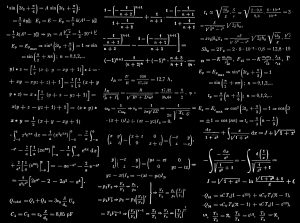From Classrooms to Competitions: Unleashing the Power of Abacus Training

In this article, we will explore the world of abacus learning and how it can transform your child’s academic journey from classrooms to competitions.
What is Abacus?
Abacus is an ancient calculating tool that has been used for centuries to perform arithmetic calculations. It consists of a rectangular frame with rods or wires running parallel across it. On each rod, some beads can be moved back and forth. The position of the beads represents different numerical values. By manipulating the beads, children can visualize numbers and perform calculations quickly in their heads.
Abacus training takes this traditional tool and combines it with modern teaching methods to make learning mathematics fun and engaging for children. It uses visualizations techniques to help children develop strong mental math abilities and improve their overall cognitive function.
Benefits of Abacus Learning
Abacus learning offers a wide range of benefits for children, both academically and in their overall development. Let’s explore some of these benefits in detail:
|
Benefit |
Description |
|---|---|
|
Enhanced Mental Math Skills |
Abacus training helps children develop strong mental math skills, enabling them to perform complex calculations quickly in their heads. Visualizing numbers on the abacus allows mastery of addition, subtraction, multiplication, and division with ease. |
|
Improved Concentration and Focus |
The interactive nature of abacus learning enhances children’s concentration and focus. Manipulating beads while solving math problems helps them concentrate for longer periods, which is essential for academic success. |
|
Enhanced Problem-Solving Skills |
Abacus training encourages logical thinking and strategic problem-solving. Children learn to approach mathematical problems methodically, improving their decision-making skills in real-life situations. |
|
Increased Memory Retention and Recall |
Using an abacus enhances memory skills by training children to remember and recall information efficiently. This ability supports better learning and retention of knowledge across subjects. |
|
Boosted Confidence and Self-Esteem |
Progressing through abacus training instills a sense of achievement that boosts children’s confidence. Increased self-esteem encourages them to tackle new challenges with a positive attitude, both academically and personally. |
|
Improved Visualization Skills |
Abacus learning enhances visualization capabilities by encouraging children to mentally manipulate numbers and visualize calculations, aiding in mathematics and enhancing creativity and abstract thinking. |
|
Cognitive Skill Development |
Abacus training strengthens critical cognitive abilities such as working memory, concentration, and problem-solving skills, improving overall cognitive function through the manipulation of beads. |
|
Preparation for Competitions |
Abacus learning provides a competitive edge in various competitions like Math Olympiads and entrance tests. Advanced modules focus on complex calculations and problem-solving strategies, giving abacus-trained students an advantage over peers. |
How to Learn Abacus
Learning abacus is convenient and accessible for children of all ages. Here are some steps to get started:
-
Find the Best Abacus Classes: Look for reputable abacus training programs that offer classes. Choose a program that has a structured curriculum and experienced instructors.
-
Invest in an Abacus: Purchase an abacus for your child to practice at home. There are different types of abacuses available, so choose one that suits your child’s age and skill level.
-
Create a Learning Schedule: Set aside dedicated time each day or week for your child to practice abacus skills. Consistency is key to mastering mental math abilities.
-
Encourage Regular Practice: Motivate your child to practice regularly by making it a fun and engaging activity. Set goals and reward their progress to keep them motivated.
-
Monitor Progress: Keep track of your child’s progress and celebrate their achievements. Regularly assess their skills and provide constructive feedback to help them improve.
-
Explore Additional Resources: Supplement abacus learning with online resources, educational games, and practice worksheets to further enhance your child’s mathematical skills.
Choosing the Best Abacus Classes
When selecting the best abacus classes for your child, consider the following factors:
-
Curriculum Structure: Look for programs that offer a comprehensive curriculum divided into different modules based on age and skill level. A structured approach ensures that your child builds a strong foundation in mathematics while gradually progressing to more complex concepts.
-
Interactive Learning Methods: Choose programs that employ interactive teaching methods such as gamification and hands-on activities. These methods make learning enjoyable and reduce anxiety associated with mathematics.
-
Experienced Instructors: Ensure that the program has experienced instructors who are trained in abacus education. Qualified instructors can effectively guide your child through the learning process.
-
Positive Track Record: Research the program’s track record and read reviews from other parents. Look for programs that have a proven record of helping children improve their mental math skills and excel academically.
Conclusion
Abacus training offers a unique and effective approach to teaching mathematics to children. By combining the traditional abacus tool with modern teaching methods, children can develop strong mental math skills and improve their overall cognitive function. The benefits of abacus learning extend beyond the classroom, preparing children for competitions and equipping them with essential life skills. If you’re looking for a way to boost your child’s mathematical abilities and overall development, consider enrolling them in the best abacus classes. With dedication and regular practice, they will unlock their full potential and excel academically and in competitive environments.
Through structured training, interactive methods, and a focus on life skills, abacus learning equips children with the confidence and competencies needed to excel academically and in competitive environments. Consider enrolling your child in the best abacus classes to provide them with a solid foundation in mathematics and enhance their cognitive development. With abacus training, your child will develop strong mental math skills, improved concentration, and problem-solving abilities, boosted confidence, enhanced visualization skills, and much more. Invest in your child’s future today with abacus training!



